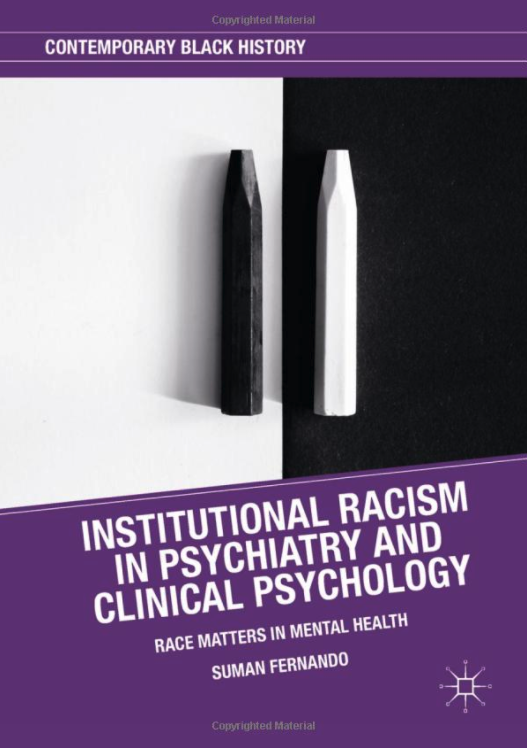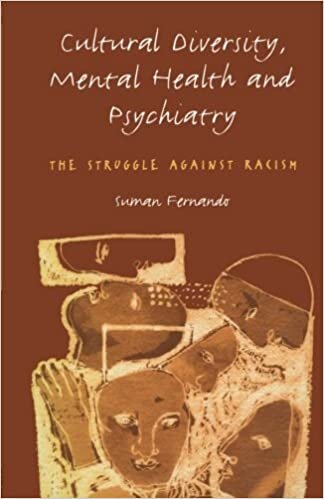This webinar focuses on the negative impact of racism on mental health symptoms for people of color. Additionally, it provides some coping resources to deal with the stress, anxiety, and overall emotional toll of racism.
This is the first of seven videos from a 2 day conference at Harvard in 2018, Race, Racism and Mental Health. The other videos can be found here.
What is “Black Mental Health” and why does it “Matter”? Hear Phillip’s journey of trauma, resilience, and advocacy as he gives an impassioned talk discussing the impact of trauma on black identity, and black wellness, and why America’s current conversation on mental health is inadequate.
The following are presentations from the ISPS 2018 Annual Conference: Psychosis and Institutional Racism in the UK. Institutional racism is sometimes viewed as the elephant in the room in mental health and psychosis. We know that people from racialised minorities are more likely to be diagnosed with schizophrenia, more likely to be subject to the Mental Health Act, and more likely to be restrained or be under a Community Treatment Order. And yet- it seems to many working or campaigning in the field that we have failed to address these issues, and that too little has changed over the past few decades.
How do start talking about and addressing institutional racism, when so often it can feel invisible or taboo? How does institutional racism affect people who use services, but also family members and carers, and professionals (psychiatrists, psychologists, nurses, OTs, HCAs etc) who deliver services? What are the barriers which stop us talking about it – and how do we address what we struggle to recognise?
These presentations encourage discussion & reflection on how institutional racism plays out in the field of psychosis, from multiple perspectives. They reflect on how we can name it, and how, together, we can start to find ways of addressing it.
Hári Sewell is Founding Director of Health HS Consultancy, UK, which specialises in mental health and social care, social justice and equalities. A qualified social worker by background, he has held senior posts in mental health and social care in the health sector, local authorities and central government. He has worked in the field of Equalities and Mental Health nationally and internationally.
Dr Suman Fernando is an Honorary Professor on the Faculty of Social Sciences and Humanities at London Metropolitan University and retired psychiatrist. He is the author of several books including Cultural Diversity, Mental Health and Psychiatry: The Struggle Against Racism.
Colin King reflects on his experiences in the medical system.
A panel discussion hosted to begin a nuanced dialogue on the intersection of race and mental health within the Muslim community. The panel will address how prolonged exposure to racism and racial microaggressions act as a detriment to mental health and how mental health treatment is often deeply racialized. The panel will also address how the Muslim community can better address mental health issues in a manner that is culturally and racially sensitive.
Institutional Racism in Psychiatry and Clinical Psychology examines the deep roots of racism in the mental health system. Suman Fernando weaves the histories of racial discourse and clinical practice into a narrative of power, knowledge, and black suffering in an ostensibly progressive and scientifically grounded system. Drawing on a lifetime of experience as a practicing psychiatrist, he examines how the system has shifted in response to new forms of racism which have emerged since the 1960s, highlighting the widespread pathologization of black people, the impact of Islamophobia on clinical practice after 9/11, and various struggles to reform. Engaging and accessible, this book makes a compelling case for the entrenchment of racism across all aspects of psychiatry and clinical psychology, and calls for a paradigm shift in both theory and practice.
Racism and Psychiatry addresses the unique sociocultural and historical systems of oppression that have alienated African-American and other racial minority patients within the mental healthcare system. This text aims to build a novel didactic curriculum addressing racism, justice, and community mental health as these issues intersect clinical practice. Unlike any other resource, this guide moves beyond an exploration of the problem of racism and its detrimental effects, to a practical, solution-oriented discussion of how to understand and approach the mental health consequences with a lens and sensitivity for contemporary justice issues. After establishing the historical context of racism within organized medicine and psychiatry, the text boldly examines contemporary issues, including clinical biases in diagnosis and treatment, addiction and incarceration, and perspectives on providing psychotherapy to racial minorities. The text concludes with chapters covering training and medical education within this sphere, approaches to supporting patients coping with racism and discrimination, and strategies for changing institutional practices in mental healthcare.
'Black and minority ethnic communities lack confidence in mental health services', according to the National Service Framework for Mental Health published by the Department of Health in 1999.
Cultural Diversity, Mental Health and Psychiatry examines how and why this situation has come about, and makes specific practical, often surprising, suggestions for changing the status quo. The book reflects on the current situation in light of the author’s personal experience, academic research and anecdotal reports. He weaves together themes of immense importance for the future of psychiatry and mental health services in a multi-cultural setting.


